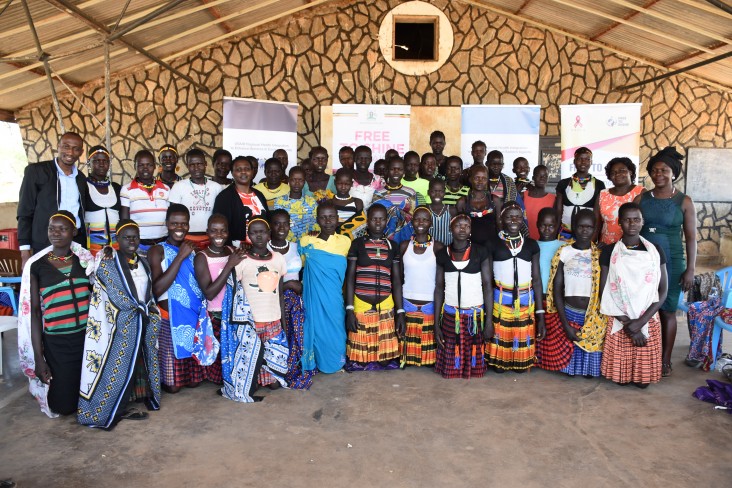Speeches Shim

As a young girl in rural Karamoja, 18-year-old Regina Nadim never went to school. “My parents could not afford school fees,’’ Regina says. "They only saw me as a source of labor and a dowry. There was no one to help me, and it was difficult to find odd jobs."
Regina’s story is typical for a Karamojong girl, especially one from a resource-constrained community. Girls are groomed to do house chores and are a source of manual labor on farmlands. This leaves them vulnerable to abuse and can expose them to HIV.
Regina was abused on several occasions by young men who used courtship as a cover for rape. It is a sadly common occurrence in Karamoja. Ashamed and with no one to share her pain, she chose to keep quiet about her traumatic experiences and their consequences.
“In hopes of finding a suitable partner, I was exposed to abuse," Regina says. “I felt humiliated and worried I could be infected with HIV.”
In Uganda, 22% of women and 8% of men have experienced sexual violence. According to the World Health Organization, one in every three women has been beaten, coerced into sex, or abused in some way.
Traditional gender roles are very rigid in Karamoja, and many girls are isolated within their communities, schools, and even homes. Their mobility is often restricted; they lack basic support from their families and communities; and many drop out of school. The sense that they don’t belong anywhere disconnects them from programs and services that aim to help.
But this is changing for girls like Regina.
Regina was invited to a safe community space initiated by the USAID Regional Health Integration to Enhance Services in Eastern Uganda (RHITES-E) Activity. There, Regina and young women from similar backgrounds come together to learn lifesaving skills and share their stories through community dialogue on gender-based violence (GBV), HIV prevention and treatment, family planning, negotiating for safe sex such as condom use, and treatment for sexually transmitted infections.
USAID and its partner IntraHealth International collaborate with local village elders and community champions like Lokomol Albino to conduct safe-space community dialogues. Lokomol is a village health team member in Regina’s village and kept in touch with Regina, making sure she participated in the project.
“I was trained by RHITES-E and I am using my knowledge to find, inform, and empower girls like Regina,” Lokomol says.
Through these dialogues, USAID has reached 500 vulnerable girls and young women in Karamoja, offering them GBV prevention services and referrals to the nearest health centers and hospitals for further support. The project has also engaged local elders and health workers to handle GBV cases through prevention and reporting procedures. Because of these interventions, Regina has gained self-confidence and has brought ten other vulnerable girls to the dialogues. Word has now spread to other village women and girls in the neighboring subcounty.
"The safe space offered me a chance to share experiences and learn from other people who have gone through similar challenges,” Regina says. “I was able to access services like HIV testing and talk freely about gender-based violence incidences without judgement. I am now a proud role model for other vulnerable girls in my community.”
Although Regina is still on the road to full recovery, she is using her newfound freedom to mentor her peers on the risks of unprotected sex and on how to negotiate for safe sex.
"I want to continue mentoring my peers and change mindsets through sharing my story," she says, “so that many more lives can be changed for the better.”

Comment
Make a general inquiry or suggest an improvement.